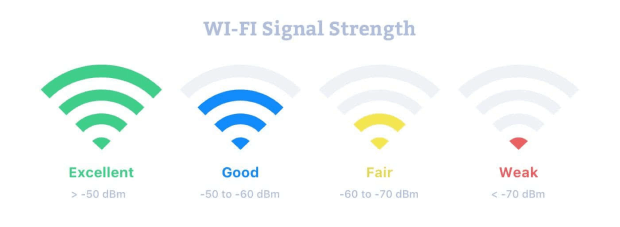
As she turned into getting on in years and her sources dwindled, Virginia Rayford took out a special form of mortgage in 2008 that she was hoping could assist her in staying in her three-bedroom Washington rowhouse for the remainder of her existence.
Rayford, ninety-two, took advantage of a federally insured mortgage called a reverse loan that lets coin-strapped seniors borrow in opposition to the equity of their homes that have been built up over decades.
But the risks of the arrangement homes are stark — and nowadays, the frail widow finds herself going through seniors.
Economy & Business Alerts
Breaking news about financial and enterprise problems.
Sign up
Under the loan terms, Rayford can defer paying back her loan debt that totals approximately $416,000 till she dies, sells, or moves out. She is, however, liable for keeping up with other costs, particularly the taxes and insurance of the belongings.
The mortgage servicer, Nationstar Mortgage, says Rayford owes $6,004 in unpaid taxes and coverage. If she cannot give it to you, she stands to lose her home in Washington’s Petworth community.
“I’ve cried 1,000,000 nights thinking about where I am going to be,’’ Rayford stated.
Across the nation, more and more seniors face foreclosures after removing reverse mortgages, both because they fell at the back of on property costs or failed to meet different requirements of the complex mortgage loans, consistent with federal information and interviews with the client housing experts.
Virginia Rayford took advantage of a federally insured loan called a reverse mortgage that lets cash-strapped seniors borrow against the equity in their homes built up over decades. (Salwan Georges/The Washington Post)
“Folks who had expected to age in place and stay for the rest of the lives of their home are now having to scramble to find a new region to live,” stated Odette Williamson, a group of workers attorney with the Boston-based National Consumer Law Center, which advocates for purchase justice for low-income human beings. “People don’t recognize where to show. It’s heartbreaking.”
The federal Department of Housing and Urban Development, which ensures maximum reverse mortgages in the United States of America, says it lacks specified statistics on what number of homeowners who have lost their homes or are dealing with foreclosure within the program, which turned into released in 1989 and covers approximately 636,000 loans. Nationstar declined to comment for this newsletter.
But a HUD document issued final fall found that almost ninety 000 reverse mortgage loans held by way of seniors had been at least 365 days at the back of in the cost of taxes and insurance and were expected to end in “involuntary termination” in fiscal 2017. That’s more than double the quantity the year before.
Losses inside the senior mortgage application drain the Federal Housing Administration’s mortgage coverage fund that supports all unmarried-family loan programs, such as traditional forward mortgages and reverse mortgages.
HUD spokesman Brian Sullivan said the employer had tightened the requirements to lessen defaults for brand-new loans going forward. It’s an essential degree as its opposite, mortgage portfolio, whose price can decrease with defaults or home fees and asset values if houses fall into disrepair, is valued finally at a bad $7.7 billion.
Still, he stated, opposite mortgages are “an essential useful resource for seniors who desire to access their accumulated home equity and
Before 2015, the best issue house owners a long time sixty-two and older needed to qualify for a reverse loan that turned into equity in their home; creditors weren’t required to decide whether they might come up with the money to hold their homes or cover tax and insurance bills in the future. Some owners used the price range to repay the original mortgages, or ran out of cash after masking living expenses over many years. Now, HUD requires all debtors to go through a monetary evaluation to qualify to make sure they’ll be able to pay their taxes and insurance.
But tens of thousands of troubled loans remain. More than 18 percent of reverse loans taken out from 2009 to June 2016 are anticipated to go into default because of unpaid taxes and coverage, consistent with the HUD record. That compares with much less than three percent of federally insured loans, considered critically delinquent inside the conventional loan market.
Joanne Savage, an attorney with AARP’s Legal Counsel for the Elderly, said that seniors like Rayford are the victims of a past gadget. She joins other advocates who argue that HUD and creditors have to paint more difficult to help debtors facing displacement for particularly small debts compared to the value of their houses.
“There is a wish to be a little greater mercy,’’ Savage stated. “We are going to have a consistent circulation of those customers for 5 to 10 years.”
A circle of relatives’ photographs hangs within the living room of Virginia Rayford’s domestic in Petworth. (Salwan Georges/The Washington Post)
A professional fulfillment award given to husband James Jr. Rayford Sr., Grace’s any other wall. (Salwan Georges/The Washington Post)
Foreclosures on these mortgages were on the rise after a 2011 mandate from HUD requiring loan servicers to work out a repayment plan with seniors in tax and insurance default, or to foreclose if there is no way to help them. In 2015, the federal business enterprise instituted specified timelines for lenders to paintings with debtors.
HUD made the changes to shore up its coverage fund after a federal audit 12 months earlier that criticized it for allowing lenders to retain paying assets expenses for defaulting debtors, including to the borrowers’ final debt, which resulted in tens of millions of dollars of losses in 2009 and 2010. In many instances, a lender paid property fees to municipalities for years so that you can protect the lender’s investments.
Representatives of the National Reverse Mortgage Lenders Association declined to comment for this report.
Leslie Flynn, a senior vice chairman at the Houston-based corporation Reverse Mortgage Solutions, stated that servicers and creditors are struggling to fulfill the strict timelines HUD set to deal with defaulting loans or hazard losing money. She said servicers don’t want to displace struggling senior citizens, but in many cases, debtors virtually don’t have sufficient assets to shop their homes.
She said seniors who received loans earlier than in 2015 are much more likely to be in trouble. Families, nonprofits, church buildings, and others should paintings to assist them, Flynne said.
“You have human beings who have run out of cash, they can’t pay their taxes, and they may be looking forward to a miracle,” she said.
Money is allotted through the “Hardest Hit Fund,” created by the Treasury Department to help households in states that were laid low by the financial and housing downturn.
Rayford is waiting for word on her request to stop the pending foreclosure. She hopes to live inside the domestic she’s lived in on an account that 1979.












